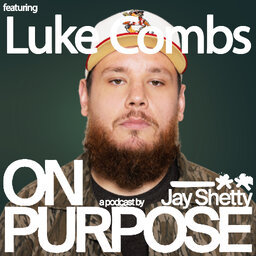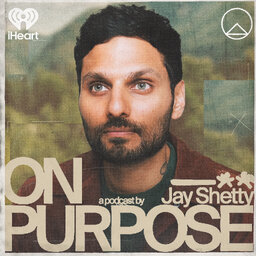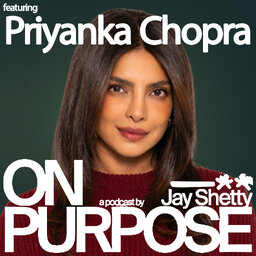Zachary Levi ON: Accepting Yourself with Radical Love & How to Know When You're Running From Your Fears
Do you want to meditate daily with me? Go to go.calm.com/onpurpose to get 40% off a Calm Premium Membership. Experience the Daily Jay. Only on Calm
Jay Shetty talks to Zachary Levi about radical love. We all grew up with some form of trauma. Some have come to terms with it and managed to move on, find new beginnings, and live better lives. Some are still struggling because their past is entangled with their present and is now limiting them mentally, socially, and emotionally. Talking to someone about these unpleasant feelings is the first step to healing. But taking the first step, for some, remains to be a difficult move.
Zachary Levi is one of the most versatile actors in Hollywood with critically acclaimed roles in TV, Film, and on Broadway. HIs career catapulted as the lead and fan favorite, Chuck Bartowski, in the hit NBC series, Chuck. Zachary demonstrated his range as a Tony Award Nominee for Best Actor in a Musical in She Loves Me. His impressive vocals landed him a leading role in the Disney Academy Award nominated (Best Original Song) animated musical, Tangled.
Want to be a Jay Shetty Certified Life Coach? Get the Digital Guide and Workbook from Jay Shetty https://jayshettypurpose.com/fb-getting-started-as-a-life-coach-podcast/
What We Discuss:
- 00:00 Intro
- 03:24 What does radical love look like?
- 14:31 How trauma affects our mindset and perspective
- 23:08 Running away from what you’re trying to survive from
- 30:00 Heal yourself by talking about the problem
Episode Resources
- Zachary Levi | Instagram
- Zachary Levi | Twitter
- Radical Love: Learning to Accept Yourself and Others
In 1 playlist(s)
On Purpose with Jay Shetty
My name is Jay Shetty, and my purpose is to make wisdom go viral. I’m fortunate to have fascinating …Social links
Follow podcast
Recent clips

LUKE COMBS: The Man Behind The Success (Marriage, Fatherhood & Life With OCD)
1:43:07

Don't Waste Your Life (Use THIS Daily Shift To Build a Life That ACTUALLY Feels Meaningful)
21:42

PRIYANKA CHOPRA JONAS: Fame, Motherhood, Love and the Moment That Changed Everything
1:49:49
 On Purpose with Jay Shetty
On Purpose with Jay Shetty